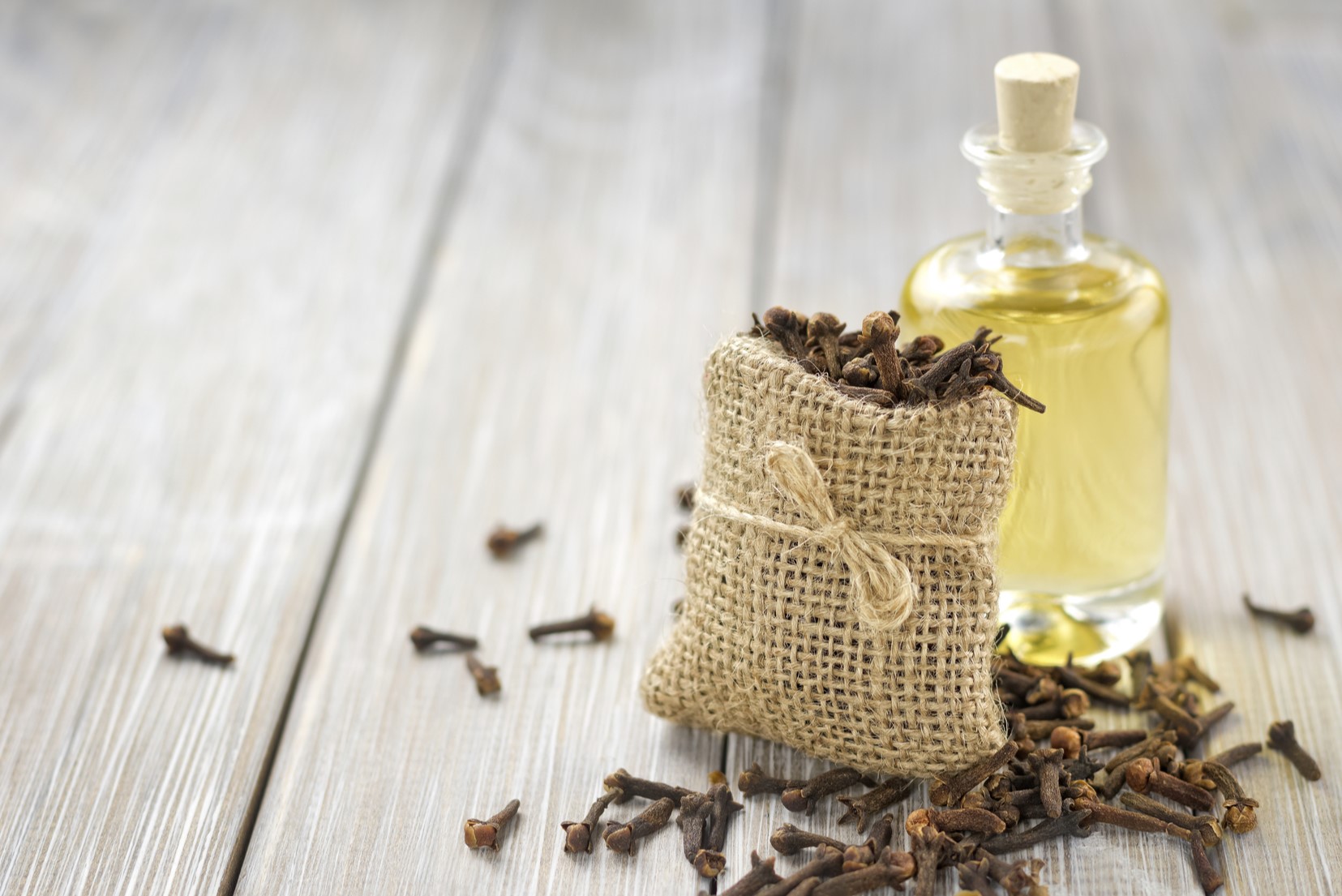
Eugenol is a fascinating compound found in various plants, most notably in cloves. This aromatic molecule plays a significant role in both traditional and modern medicine. But what exactly is eugenol, and why is it so important? Eugenol is a natural phenolic compound with a spicy, clove-like aroma. It’s widely used in dentistry for its analgesic and antiseptic properties. Beyond the dental chair, eugenol finds its way into perfumes, flavorings, and even as a pesticide. Its versatility stems from its unique chemical structure, which allows it to interact with different biological systems. Whether you’re a science enthusiast or just curious about what makes cloves so special, these 50 facts about eugenol will enlighten and surprise you.
Key Takeaways:
- Eugenol, found in cloves and other plants, has a spicy aroma and is used in food, medicine, and cosmetics. It can help with toothaches, enhance flavors, and has a calming effect in aromatherapy.
- While eugenol has many benefits, it's important to use it safely. It can cause skin irritation, so it should be diluted and kept away from children. Always follow the recommended dosage and seek guidance from a healthcare professional.
What is Eugenol?
Eugenol is a fascinating compound found in various plants, especially cloves. It has a spicy, clove-like aroma and is widely used in different industries. Here are some intriguing facts about eugenol:
- Eugenol is a phenylpropene, a type of phenol.
- It is primarily extracted from clove oil.
- Eugenol is also found in cinnamon, nutmeg, and basil.
- It has a molecular formula of C10H12O2.
- Eugenol is a colorless to pale yellow oily liquid.
- It has a boiling point of 254°C (489°F).
- Eugenol is slightly soluble in water but highly soluble in organic solvents.
- It has a strong, spicy aroma reminiscent of cloves.
- Eugenol is used as a flavoring agent in foods and beverages.
- It is also used in perfumes and cosmetics for its pleasant scent.
Uses of Eugenol in Medicine
Eugenol has several medicinal properties that make it valuable in healthcare. Let's explore some of its uses:
- Eugenol has antiseptic properties.
- It is used as a local anesthetic in dentistry.
- Eugenol can help relieve toothache.
- It has anti-inflammatory properties.
- Eugenol is used in mouthwashes and toothpaste.
- It can help treat minor burns and wounds.
- Eugenol has antifungal properties.
- It is effective against certain strains of bacteria.
- Eugenol can help reduce fever.
- It is used in aromatherapy for its calming effects.
Eugenol in Food and Beverages
Eugenol's unique flavor and aroma make it a popular ingredient in the culinary world. Here are some ways it is used:
- Eugenol is used to flavor baked goods.
- It is an ingredient in some candies.
- Eugenol is used in spice blends.
- It can be found in certain alcoholic beverages.
- Eugenol is used in sauces and marinades.
- It enhances the flavor of meats.
- Eugenol is used in pickling.
- It is an ingredient in some soft drinks.
- Eugenol is used in chewing gum.
- It can be found in some dairy products.
Eugenol in Perfumes and Cosmetics
Eugenol's pleasant scent makes it a popular choice in the fragrance industry. Here are some of its uses:
- Eugenol is used in perfumes.
- It is an ingredient in colognes.
- Eugenol is used in scented candles.
- It is found in air fresheners.
- Eugenol is used in soaps.
- It is an ingredient in lotions.
- Eugenol is used in shampoos.
- It is found in conditioners.
- Eugenol is used in deodorants.
- It is an ingredient in bath oils.
Safety and Precautions
While eugenol has many benefits, it is important to use it safely. Here are some safety tips:
- Eugenol can cause skin irritation in some people.
- It should be used in diluted form.
- Eugenol can be toxic if ingested in large amounts.
- It should be kept away from children.
- Eugenol can cause allergic reactions.
- It should not be used on broken skin.
- Eugenol should be stored in a cool, dry place.
- It should be used under the guidance of a healthcare professional.
- Eugenol can interact with certain medications.
- It is important to follow the recommended dosage.
Final Thoughts on Eugenol
Eugenol, a compound found in clove oil, has a wide range of uses and benefits. From its antimicrobial properties to its role in pain relief, this versatile substance has been a staple in both traditional and modern medicine. It's used in dentistry for its anesthetic qualities and in aromatherapy for its calming effects. Eugenol also plays a part in food preservation and perfumery, showcasing its diverse applications.
Understanding eugenol's benefits can help you make informed choices about its use. Whether you're looking to alleviate a toothache, enhance a dish, or simply enjoy a soothing scent, eugenol offers a natural solution. Keep in mind, though, that while eugenol is generally safe, it's always best to use it in moderation and consult a healthcare professional if you have any concerns.
Frequently Asked Questions
Was this page helpful?
Our commitment to delivering trustworthy and engaging content is at the heart of what we do. Each fact on our site is contributed by real users like you, bringing a wealth of diverse insights and information. To ensure the highest standards of accuracy and reliability, our dedicated editors meticulously review each submission. This process guarantees that the facts we share are not only fascinating but also credible. Trust in our commitment to quality and authenticity as you explore and learn with us.


